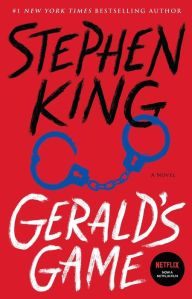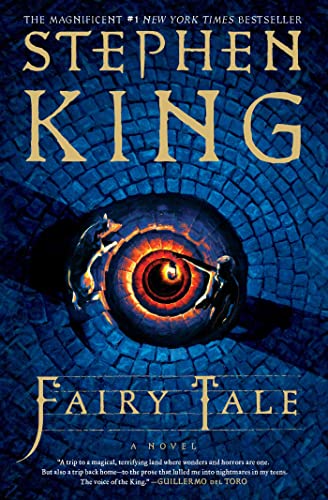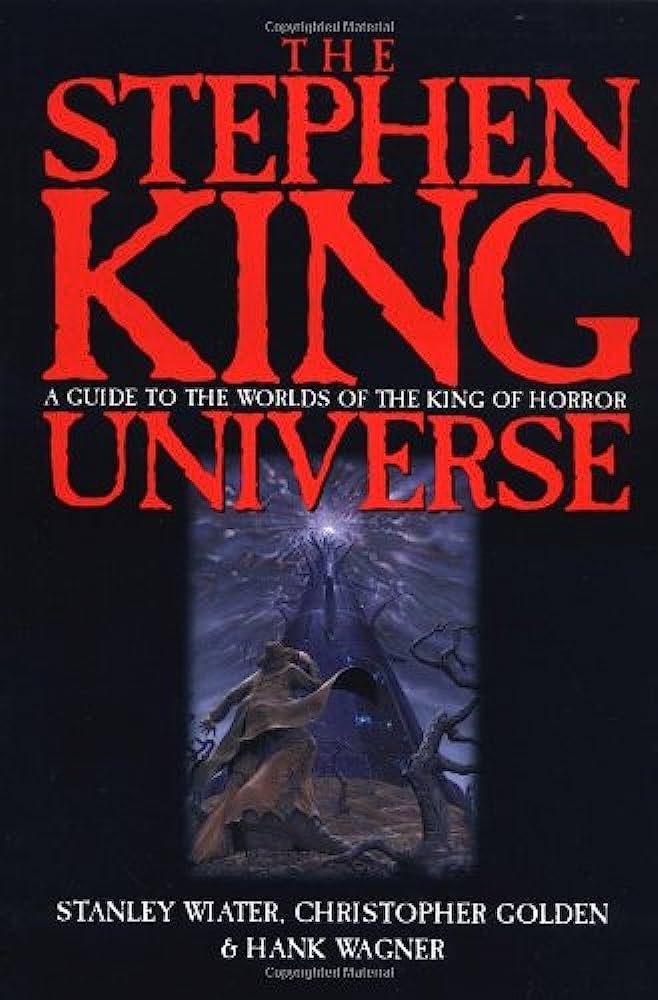The Power Of Belief: Religion And Faith In Stephen King’s Books
In the enchanting world of Stephen King’s books, there is a captivating exploration of the power of belief, where religion and faith play a significant role. With his masterful storytelling and uncanny ability to delve into the depths of human nature, King weaves intricate narratives that examine the impact of religious beliefs and the strength of faith. From the chilling horrors of “Carrie” to the otherworldly dimensions of “The Dark Tower” series, King’s works showcase the profound influence of religion on his characters and their journeys.
In King’s literary universe, belief becomes a force that can shape destinies, challenge the boundaries of reality, and unleash both the light and dark sides of human nature. Through his vivid descriptions and thought-provoking narratives, King explores the complex interplay between faith, doubt, and the supernatural. Whether it’s the zealous religious fervor of a fanatical preacher or the quiet strength of a character’s personal convictions, the exploration of religion and faith adds depth and complexity to King’s stories, elevating them beyond mere tales of horror and suspense.
The power of belief in Stephen King’s books is a compelling theme that resonates with readers on a profound level. It invites us to question our own beliefs, confront our fears, and ponder the mysteries of the universe. As we journey through the pages of King’s novels, we are reminded of the enduring strength of faith and the profound impact it can have on our lives, even in the face of unimaginable horrors. So buckle up, dear readers, and prepare to embark on a thrilling exploration of religion and faith in the mesmerizing world of Stephen King.

The Power of Belief: Religion and Faith in Stephen King’s Books
Stephen King is a master storyteller known for his ability to captivate readers with his thrilling and often chilling tales. While horror may be the genre he is most associated with, a closer look at his work reveals a recurring theme of religion and faith. In many of his books, King explores the power of belief, both in the context of organized religion and personal faith. This article will delve into the role that religion and faith play in Stephen King’s books, highlighting the ways in which these themes shape his narratives and characters.
H2: The Role of Religion in Stephen King’s Books
Religion is a prominent aspect of many of Stephen King’s novels, serving as a driving force behind the actions of his characters. One of the most notable examples is in “Carrie,” where the titular character’s telekinetic powers are initially triggered by her strict religious upbringing. As a result of her mother’s fanatical beliefs, Carrie develops a warped sense of morality and uses her powers to seek revenge on those who have wronged her. This exploration of the darker side of religion is a recurring theme throughout King’s work.
In “The Stand,” religion takes center stage as the survivors of a devastating pandemic are divided between two factions: one led by the benevolent Mother Abagail and the other by the malevolent Randall Flagg. This battle between good and evil is ultimately a battle between faith and doubt, as characters are forced to confront their beliefs and make choices that will determine the fate of humanity. King’s portrayal of religion in “The Stand” raises questions about the nature of faith and the power it holds over individuals and society as a whole.
H3: The Power of Belief in Personal Faith
While organized religion is a common theme in Stephen King’s books, he also explores the power of belief in the context of personal faith. In “The Green Mile,” the protagonist, Paul Edgecombe, is a prison guard who develops a unique connection with a death row inmate named John Coffey. Coffey possesses supernatural healing abilities, leading Paul to question his own beliefs and the existence of a higher power. Throughout the novel, King examines the ways in which personal faith can shape one’s worldview and the impact it can have on the lives of individuals.
Another example of personal faith in King’s work can be found in “Revival.” The novel follows the life of Jamie Morton, who forms a mysterious and intense bond with his charismatic pastor, Charles Jacobs. As Jamie delves deeper into Jacobs’ experiments with electricity and the afterlife, he is forced to confront the limits of his own understanding and the power of faith. King’s exploration of personal faith in “Revival” raises thought-provoking questions about the nature of belief and its potential consequences.
H4: The Influence of Religion on King’s Characters
Throughout Stephen King’s books, religion often shapes the motivations and actions of his characters. In “Misery,” the protagonist, Paul Sheldon, finds himself at the mercy of his deranged fan, Annie Wilkes, who believes she is carrying out God’s will by forcing Paul to write a novel to her specifications. Annie’s twisted interpretation of religion drives her to commit heinous acts in the name of her misguided faith, highlighting the dangerous potential of religious fanaticism.
In “Desperation,” a group of travelers find themselves trapped in a small mining town controlled by an evil entity that takes the form of a local policeman. This entity, known as Tak, feeds off the fear and desperation of its victims, using religion as a means of manipulation. Tak takes on the persona of a religious figure, exploiting the characters’ beliefs to further its own sinister agenda. King’s portrayal of religion as a tool of manipulation in “Desperation” underscores the potential dangers of blind faith.
In conclusion, Stephen King’s books often delve into the power of belief, exploring the role of religion and personal faith in shaping his characters and narratives. Whether examining the darker side of organized religion or the profound impact of personal faith, King’s work raises thought-provoking questions about the nature of belief and its influence on individuals and society. Through his masterful storytelling, he invites readers to consider the complexities of religion and faith in the face of the unknown. So, dive into the world of Stephen King’s books and discover the power of belief for yourself.
The Power of Belief: Religion and Faith in Stephen King’s Books
- Religion and faith play a significant role in Stephen King’s books.
- Belief in something greater than ourselves can provide comfort and hope in times of darkness.
- Stephen King explores the power of religious symbols and rituals to create suspense and tension in his stories.
- Religious themes often challenge characters’ beliefs and test their faith, adding depth to the narratives.
- King’s portrayal of religious extremism reminds us of the potential dangers of blind faith and fanaticism.
Frequently Asked Questions
In this section, we will answer some frequently asked questions about the power of belief, religion, and faith in Stephen King’s books.
1. How does Stephen King explore the theme of belief in his books?
In Stephen King’s books, the theme of belief is often explored through the lens of religion and faith. He delves into the power of belief and how it can shape individuals and their actions. Whether it’s the belief in a higher power, the power of prayer, or the belief in supernatural forces, King weaves these elements into his stories to create a sense of mystery and intrigue.
King often blurs the lines between the real and the supernatural, making his characters question their own beliefs and exposing them to situations that challenge their faith. Through this exploration, he raises thought-provoking questions about the nature of belief and the impact it can have on individuals and society as a whole.
2. How does religion play a role in Stephen King’s narratives?
Religion is a recurring theme in Stephen King’s narratives, often used to add depth and complexity to his characters and storylines. He incorporates various religious elements, such as religious institutions, religious figures, and religious rituals, to explore the influence of faith on individuals and their experiences.
King’s portrayal of religion is not limited to a specific belief system but encompasses a wide range of religious references, including Christianity, Judaism, and even elements of the occult. By incorporating religious themes, he taps into the universal human experiences of belief, doubt, and the search for meaning, which resonate with readers on a deeper level.
3. How does Stephen King challenge traditional religious beliefs in his books?
In his books, Stephen King often challenges traditional religious beliefs by presenting alternative interpretations and exploring the darker side of faith. He delves into the idea that belief can be both empowering and destructive, highlighting the potential dangers of blind devotion and fanaticism.
King’s characters are often confronted with supernatural phenomena that defy traditional religious explanations, forcing them to question their long-held beliefs. He raises philosophical questions about the nature of good and evil, the existence of a higher power, and the limitations of human understanding. Through these challenges, King invites readers to contemplate their own beliefs and consider alternative perspectives.
4. How does Stephen King use faith as a driving force in his stories?
Stephen King frequently utilizes faith as a driving force in his stories, propelling characters to take action and confront their fears. Whether it’s the belief in a divine purpose, the power of redemption, or the hope for salvation, faith serves as a motivation for his characters to face supernatural threats and overcome personal obstacles.
King explores the transformative power of faith, showing how it can empower individuals to overcome seemingly insurmountable odds. Belief becomes a source of strength and resilience, providing characters with the courage and determination to confront the horrors they encounter. Through these narratives, King emphasizes the importance of belief in the face of adversity.
5. How does Stephen King address the role of skepticism and doubt in relation to belief?
In Stephen King’s books, skepticism and doubt often play a crucial role in challenging and shaping characters’ beliefs. He acknowledges the natural human inclination to question and doubt, presenting characters who are skeptical of religious claims and supernatural phenomena.
Through the exploration of skepticism, King creates a sense of tension and uncertainty, blurring the line between what is real and what is imagined. He encourages readers to critically examine their own beliefs, to question the validity of religious dogma, and to consider alternative explanations. By incorporating skepticism and doubt, King adds a layer of realism to his narratives and prompts readers to engage in introspection.
Stephen King Questions God, Faith In ‘Revival’ | TODAY
Final Thought
As we delve into the eerie and captivating world of Stephen King’s books, it becomes evident that the power of belief, religion, and faith plays a significant role in his storytelling. King masterfully weaves these themes into his narratives, exploring the depths of human nature and the supernatural. Through his vivid characters and gripping plots, he reminds us of the profound impact that belief systems can have on individuals and communities.
Throughout his works, King demonstrates that belief can be both a source of strength and a catalyst for destruction. Whether it is the unwavering faith of characters who face unimaginable horrors or the fanatical devotion to religious ideologies, the power of belief shapes their actions and ultimately determines their fate. King reminds us that faith can provide solace and guide us through the darkest of times, but it can also blind us to the truth and lead us down a treacherous path.
By exploring the complexities of belief, religion, and faith, Stephen King invites us to reflect on our own convictions and question the influence they have on our lives. His books serve as a mirror, forcing us to confront our deepest fears and examine the role of belief in shaping our reality. Whether you are a fan of horror or not, King’s exploration of these themes is undeniably thought-provoking and resonates with readers on a profound level.
So, as we bid farewell to the chilling worlds created by Stephen King, we are left with a newfound appreciation for the power of belief and its impact on our lives. Let us remember that belief can be a double-edged sword, capable of both inspiring and corrupting. It is up to us to navigate these murky waters and find a balance that allows us to embrace the strength of faith while remaining open to the ever-changing nature of the world around us.






